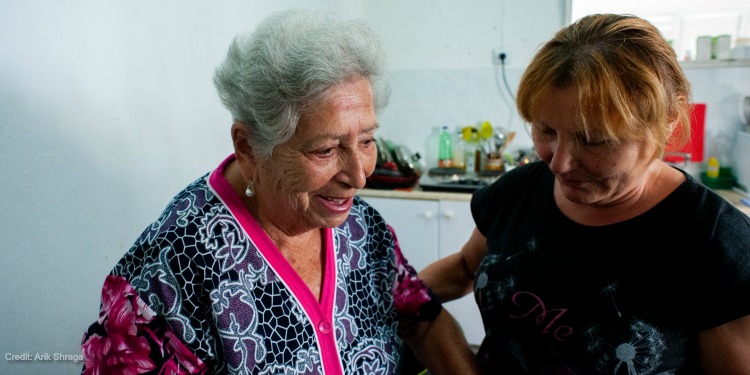Helping Poor Is a Loan to God
Yael Eckstein | December 31, 2021

Whoever is kind to the poor lends to the LORD,
and he will reward them for what they have done. — Proverbs 19:17
We continue with devotional thoughts from the Book of Proverbs every Friday. One of the 11 books in the Torah known as the Ketuvim, Hebrew for “writings,” Proverbs is part of the “wisdom tradition,” which also includes Job and Ecclesiastes.
From a young age, my parents were very clear about the importance of giving to the needy. As soon as we had any source of our own money, they taught my sisters and me the biblical principle of the tithe — giving ten percent of our money to charity (Leviticus 27:30; Numbers 18:26). So when we earned babysitting money, we automatically set aside a tenth of what we made for charitable giving.
However, my parents were not interested in merely teaching us to give our money to charity. Their ultimate goal was for us to become generous people — people who looked past our own desires and concerns and saw the needs and challenges of others. Teaching tithing at a young age can have a very powerful effect on children. I can’t encourage it enough.
Tithing is pretty unique among the biblical commandments. Even though we aren’t supposed to test God or demand a reward for serving Him, Malachi 3:10 tells us that we can test God and expect Him to repay us for tithing!
Helping Poor Is a Loan to God
This same idea is beautifully expressed in Proverbs 19, where helping the poor is described as a loan to God. Think about that — it doesn’t say that it’s an offering to God, a gift to God, or a tax. It’s a loan!
The Hebrew word for “Whoever is kind” in this verse is chonen. Chonen is from the same root as chinam, which means “given for free.” In other words, the Bible is telling us that when we help the poor without any expectation that the needy person will be indebted to us, but when we give freely, God will treat it as a loan. God Himself will repay us!
As my abba, father, Fellowship Founder Rabbi Yechiel Eckstein, of blessed memory, always said, “It’s harder to ask for help than to give help. If a person asks, we must give.”
